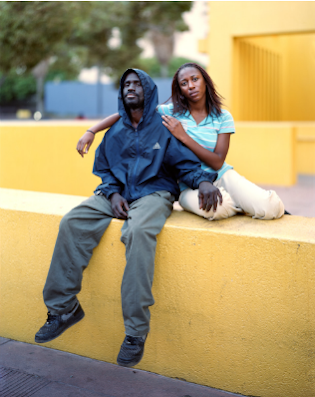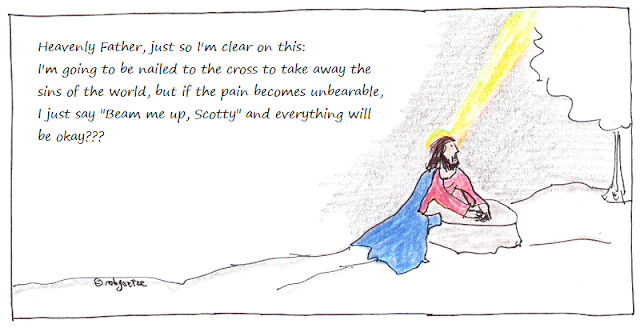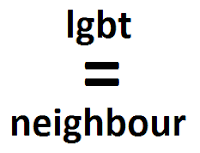Friday, November 29, 2013
Monday, November 25, 2013
[pure scum by mike sares]
"An exhilarating faith life is a tricky business. But ask anyone who's sought after it--from the founders and members of Scum of the Earth Church in Denver to the apostle Paul, from whose letters the church took its name--and they'll tell you it's worth it. In Pure Scum Mike Sares, pastor of Scum of the Earth, takes us along a faith journey, telling the story of how a pretty normal, middle-aged guy met and became friends with Reese Roper and other members of the band, Five Iron Frenzy, and got hoodwinked by FIF and the Holy Spirit into pastoring of a vibrant church full of artists and skater punks. For anyone--pastor, church leader or plain old Christian--who wants to share the amazing grace of God with the "left-out" and "the right-brained," Mike's story will show you what this kind of exhilaration looks like, and more importantly, what it costs. It's a tricky business, but it's worth every step and misstep." (source).
From the reviews I had read, I expected this book to be amazing. It was certainly interesting, but unlike jesus freak and fall to grace it did not pull me onward. Instead, I had to push through it. Maybe the writing style just didn't work as well for me. However, I include it here in any case because it is about a church that embraced others in ways which are far too rare, and that made it worth reading.
From the reviews I had read, I expected this book to be amazing. It was certainly interesting, but unlike jesus freak and fall to grace it did not pull me onward. Instead, I had to push through it. Maybe the writing style just didn't work as well for me. However, I include it here in any case because it is about a church that embraced others in ways which are far too rare, and that made it worth reading.
Saturday, November 23, 2013
russian lgbt = my neighbour
When Jesus was crucified, the Roman authorities put up a sign which read, "Jesus of Nazareth, King of the Jews". The religious authorities protested, wanting the sign to say that this was Jesus' claim, as they did not follow him nor take him as their king. (John 19:19-20).
Today, the sign could well say something like "Jesus, Lover of Russian Queers" or "Jesus, Lover of Ugandan Homosexuals."
Outrageous and offensive? Probably, but not anymore than "King of the Jews" was.
And maybe such a sign wouldn't happen, as those who use words like queer and homosexual tend to be in favour of Jesus, and would not write both on the same sign.
But if it did appear, this version of the sign would be protested by some of today's religious people for a different reason. While they would agree that Jesus is their king, they don't follow Him. At least not to the margins, the outcast, the dispossessed, the oppressed. And there would be disagreement as to whether Jesus even loves LGBT people of any sort, let alone Russian or Ugandan LGBT people.
Ironic and sad, isn't it? Has Jesus' love not really conquered hate after all? Or perhaps those of us who follow Jesus need to follow Him in standing with men and women at the margins, standing up for those who are oppressed and downtrodden, no matter how great or small the divide between us seems ....
Who is my neighbour? My answer is clear:
Today, the sign could well say something like "Jesus, Lover of Russian Queers" or "Jesus, Lover of Ugandan Homosexuals."
Outrageous and offensive? Probably, but not anymore than "King of the Jews" was.
And maybe such a sign wouldn't happen, as those who use words like queer and homosexual tend to be in favour of Jesus, and would not write both on the same sign.
But if it did appear, this version of the sign would be protested by some of today's religious people for a different reason. While they would agree that Jesus is their king, they don't follow Him. At least not to the margins, the outcast, the dispossessed, the oppressed. And there would be disagreement as to whether Jesus even loves LGBT people of any sort, let alone Russian or Ugandan LGBT people.
Who is my neighbour? My answer is clear:
Wednesday, November 20, 2013
ha #5
For those of you who don't read the Russian script, here's the Russian law spelled out in plain English:
This might seem innocuous to some persons who would like to restrict the amount of information about sexuality that is available to minors, but its lack of definition means that people can readily be charged or arrested under this law for all kinds of things. Not only that, but anti-gay violence has increased in Russia since the law was passed, making Russia a hostile place for those in sexual minorities.
Not only that, but some American evangelical pastors, feeling they've "lost the culture war" in their own country, are promoting oft-extreme anti-gay laws in other parts of the world. Google it and see....
Tuesday, November 12, 2013
[touching strangers]

Many of the portraits show a surprising degree of comfort, even though the people in them have never met before.
And some speak of feeling connected to the other person, based on this shared experience.
And some speak of feeling connected to the other person, based on this shared experience.
Interesting, how little it can take to connect people to one another — no matter how different, yet how rarely we connect.
Read an article "New York photographer turns strangers into friends" Link
Friday, November 08, 2013
faceless
Do we see other people as faceless?
What preconceived ideas do we have as to what constitutes a person and what does not?
Google seems to have some ideas about it. Here's that it said when I uploaded my choice of profile photo:
Monday, November 04, 2013
the homeless are not human
If you haven't heard about the Medial Prefrontal Cortex (mPFC for short), here's a quick explanation followed by the disturbing results of an experiment:
According to Psychology Today, the mPFC "activates when people do things that involve perceiving and relating to other people, such as recognizing and distinguishing between faces and empathizing." This means that it activates for your mother and your partner, but it does not activate when you see the sandwich your mother made for you or the sweater your partner gave you (no matter how tasty the sandwich or lovely the sweater).
 In their experiment, researchers Lasana Harris and Susan Fiske showed pictures of specific groups of people and measured the response of the mPFC. Here's what they found:
In their experiment, researchers Lasana Harris and Susan Fiske showed pictures of specific groups of people and measured the response of the mPFC. Here's what they found:Images of all other groups besides the homeless activated the mPFC. This suggests that the homeless are not recognized as human relative to other groups. They actually are perceived, at least in this area of the brain, more like objects, such as tables.
The cartoon above is suggesting that Jesus' mPFC was malfunctioning, as he saw the hungry, the thirsty, the homeless, as people. Of course, it wasn't malfunctioning -- he was correctly functioning in seeing everyone whom God has made. So the questions I have are:
- If the study was done among the religious in Jesus' day, would it have had similar results?
- If this study had includes homeless persons among the subjects, would their mPFC activate when shown images of homeless people? (I'd assume "yes," but there could be other variables involved).
- Some non-homeless people do see homeless people as people. Why is this different for them?
- Can we use our mPFC as an excuse for ignoring some people?
“Then the righteous will answer him, ‘Lord, when did we see you hungry and feed you, or thirsty and give you something to drink? When did we see you a stranger and invite you in, or needing clothes and clothe you? When did we see you sick or in prison and go to visit you?’
“The King will reply, ‘Truly I tell you, whatever you did for one of the least of these brothers and sisters of mine, you did for me.’" Matthew 25:37-40 NIV
Read more about mPFC studies.
categories:
homelessness,
jesus,
jesus prays,
margins,
poverty,
western jesus
Friday, November 01, 2013
[enemies are our neighbours]
Jesus said,
"Opus Prize and UN Nansen Award winner Marguerite Barankitse, known as "Maggy," witnessed the murder of over 70 people in Ruyigi, during the civil war between Hutu and Tutsi tribes in Burundi. Maggy responded by founding Maison Shalom (House of Peace), “I am a tutsi woman. Before the war began I already had seven adopted children, four hutu and three tutsi." (more...).
Watch more at Works of the People.
You have heard that it was said, ‘Love your neighbor and hate your enemy.’ But I tell you, love your enemies and pray for those who persecute you, that you may be children of your Father in heaven.
Matthew 5:43-45 NIV
"Opus Prize and UN Nansen Award winner Marguerite Barankitse, known as "Maggy," witnessed the murder of over 70 people in Ruyigi, during the civil war between Hutu and Tutsi tribes in Burundi. Maggy responded by founding Maison Shalom (House of Peace), “I am a tutsi woman. Before the war began I already had seven adopted children, four hutu and three tutsi." (more...).
In this short video and several others at Works of the People, she shares about loving others, particularly those who have committed horrible crimes....
Watch more at Works of the People.
Subscribe to:
Posts (Atom)









